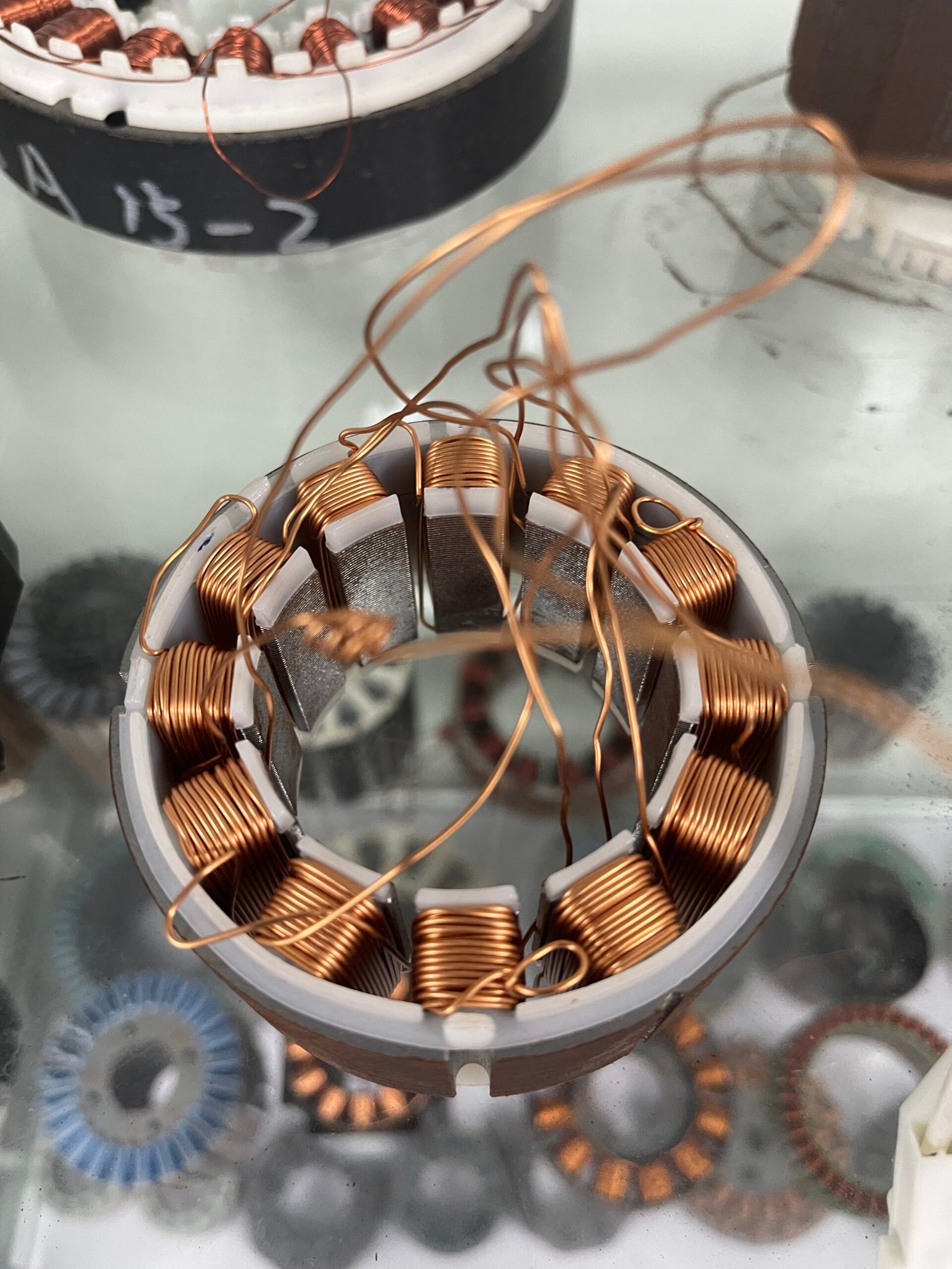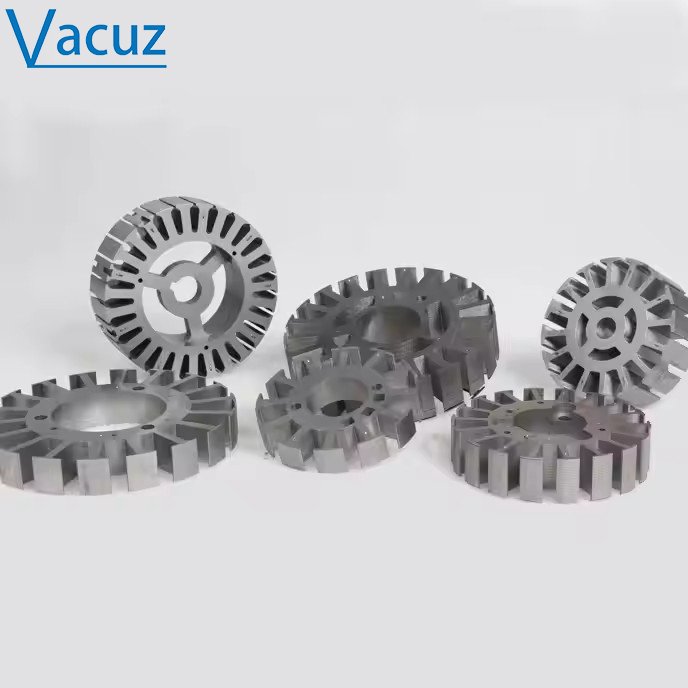The use of fully automatic motor stator winding machines solves the winding challenges faced by many motor manufacturers, reduces labor costs, and improves motor production efficiency. So, how does a modular design approach to fully automatic motor stator winding work? What are the machine configuration requirements? Vacuz will explain.

I. Core Modular Design Solution
1. Modular Mechanical Structure
Independent Workstation Modules: Winding, routing, trimming, loading and unloading functions are modularized. Standardized interfaces (flanges, quick-change plugs) enable rapid assembly and disassembly, with station changeover times ≤ 15 minutes.
Quick Fixture Change System: Pneumatic clamping + intelligent mold recognition, positioning accuracy ±0.02mm, and compatibility with multiple stator models.
Redundant Design: Key components (motor and lead screw) are backed up with dual backups. In the event of a primary failure, the backup module automatically activates, improving reliability by 30%.
2. Modular Electrical System
Distributed Control: A PLC + multi-axis motion controller architecture enables independent module control, ensuring fault isolation without impacting overall operation.
Plug-and-Play Drive: Standardized interfaces for servo drives and tension controllers, hot-swap maintenance time ≤ 10 minutes, and tension fluctuation ≤ ±0.5N.
Power and Signal Separation: Independent wiring for high and low-voltage power reduces electromagnetic interference.
3. Modular Software System
Process Parameter Library: Automatically generates winding programs based on stator parameters, with changeover time ≤ 5 minutes.
Remote Monitoring and Diagnostics: 4G/5G transmission of operating data enables cloud-based predictive maintenance.
Human-Machine Interface: Graphical operation with multi-language switching, integrated production statistics and report export capabilities.
II. Core Machine Configuration Requirements
1. High-Precision Drive System
Servo Motor and Gearbox: Brand-name motor + planetary gearbox, rotational accuracy ≤ ±0.1°, speed fluctuation ≤ ±1%.
Linear Motion Components: Ball screw + linear guide, cable routing accuracy ≤ ±0.05mm, speed up to 500mm/s.
2. Intelligent Tension Control
Closed-loop Tension Sensor: Range 0-10N, Resolution 0.01N, Tension Fluctuation ≤±0.2N (0.2mm enameled wire).
Adaptive Algorithm: Automatically adjusts tension based on wire type (copper/aluminum) (15% reduction for aluminum wire, 10% increase for copper wire).
3. High-Reliability Detection System
Machine Vision: AI identifies broken and skipped wires (0.1mm accuracy), can detect breakpoints ≥0.5mm, and initiates a shutdown alarm.
Multi-Function Sensor: Photoelectric Encoder (10,000 pulses/rev), Displacement Sensor (0.01mm accuracy).
4. Automated Loading and Unloading System
Six-Axis Robotic Arm: Load 5-10kg, Positioning Accuracy ±0.05mm, Loading and Unloading Cycle ≤8 seconds.
Visual Positioning: Industrial camera template matching, Positioning Accuracy ±0.02mm.
5. Environmental Adaptability and Safety
Protective Design: IP54 protective cover + safety light curtain/emergency stop button, compliant with CE/UL standards.
Environmental Control: Temperature and humidity sensors trigger cooling/dehumidification (when temperature > 40°C or humidity > 80%).

How is the modular design of fully automatic motor stator winding implemented? What are the machine configuration requirements? Vacuz has provided a brief explanation, and we hope this information will be helpful!
Email: sales@vacuz.com [fusion_form form_post_id=”431″ margin_top=”” margin_right=”” margin_bottom=”” margin_left=”” hide_on_mobile=”small-visibility,medium-visibility,large-visibility” class=”” id=””][/fusion_form]

